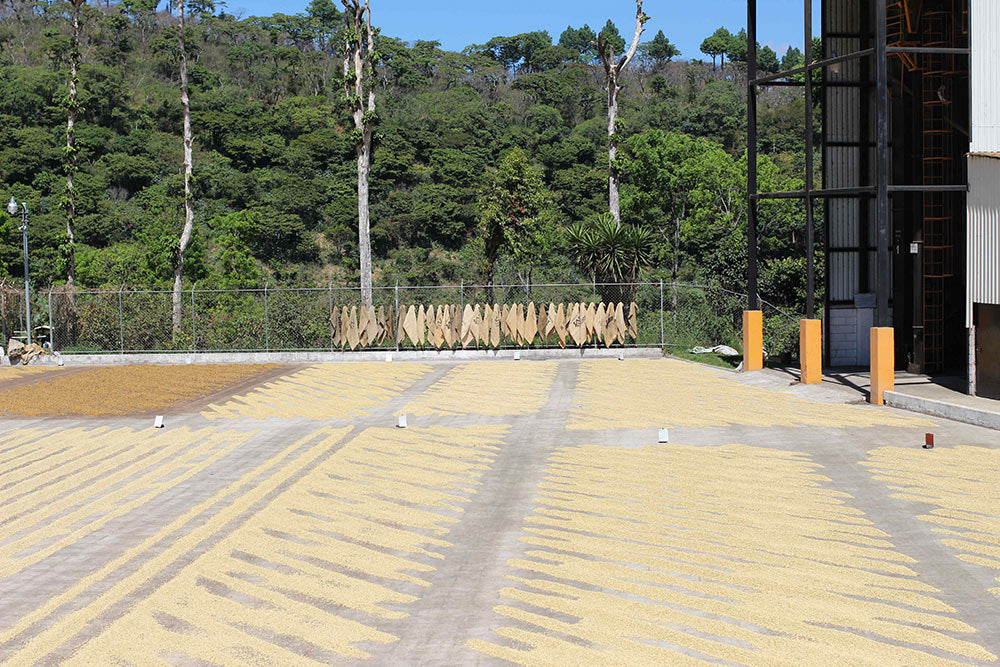Manzano, Manzano!
Manzano, Manzano
After spending a week with the Menendez family of Ahuachapán, El Salvador, we returned to San Salvador to drop Jake (wholesale team member), and Jill (barista) off at the airport, and pick up Jon (roaster). From San Salvador we returned to the Apaneca-Ilamatapec mountain range to visit with the folks at Cuatro M Cafes.
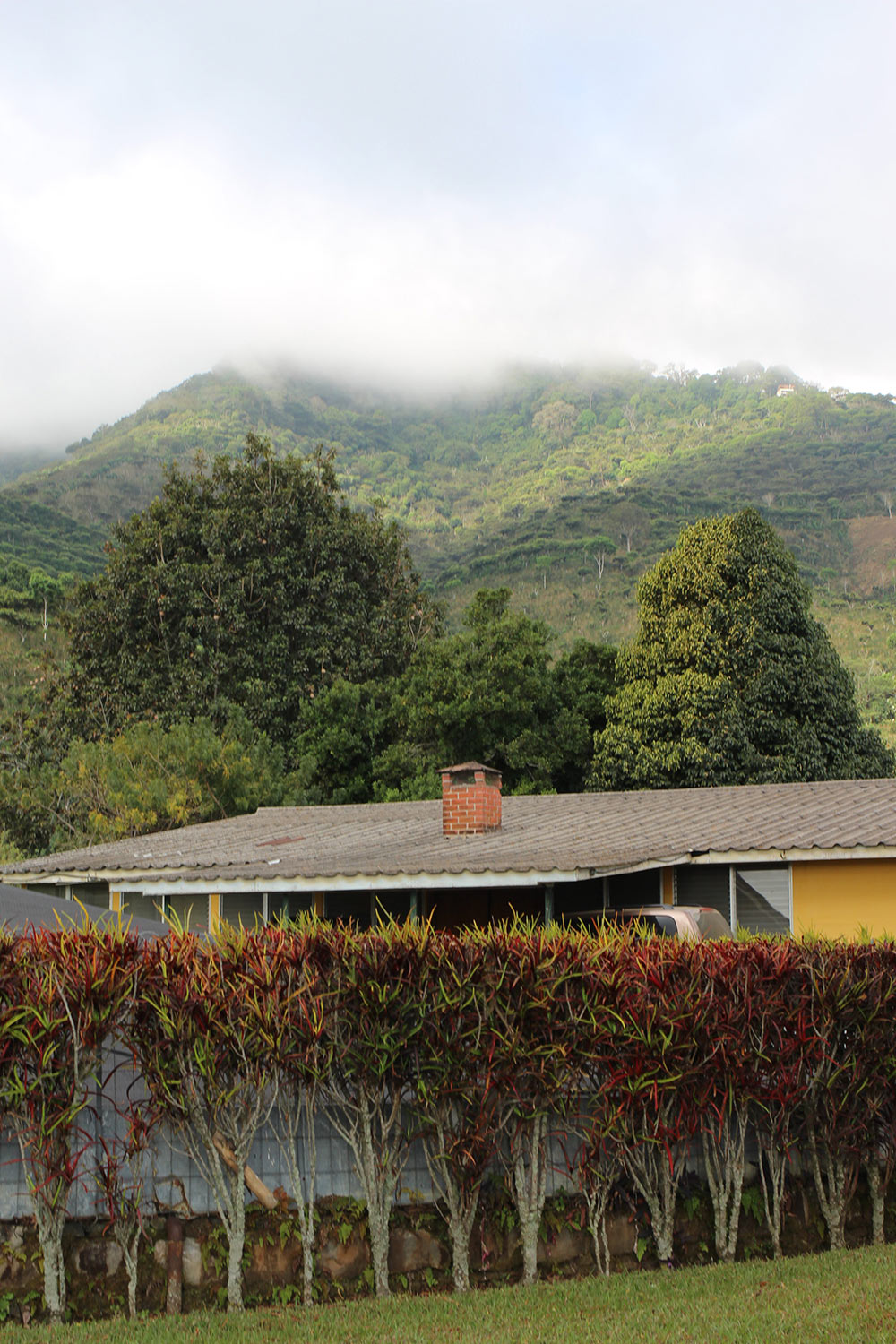
Cuatro M is a family business managed by Emilio Lopez Diaz that grows, mills, and exports coffee from El Salvador. The family owns two farms (Finca El Manzano and Finca Ayutepeque) whose harvests are processed at their mill Beneficio El Manzano located just south of El Salvador’s second largest city, Santa Ana.
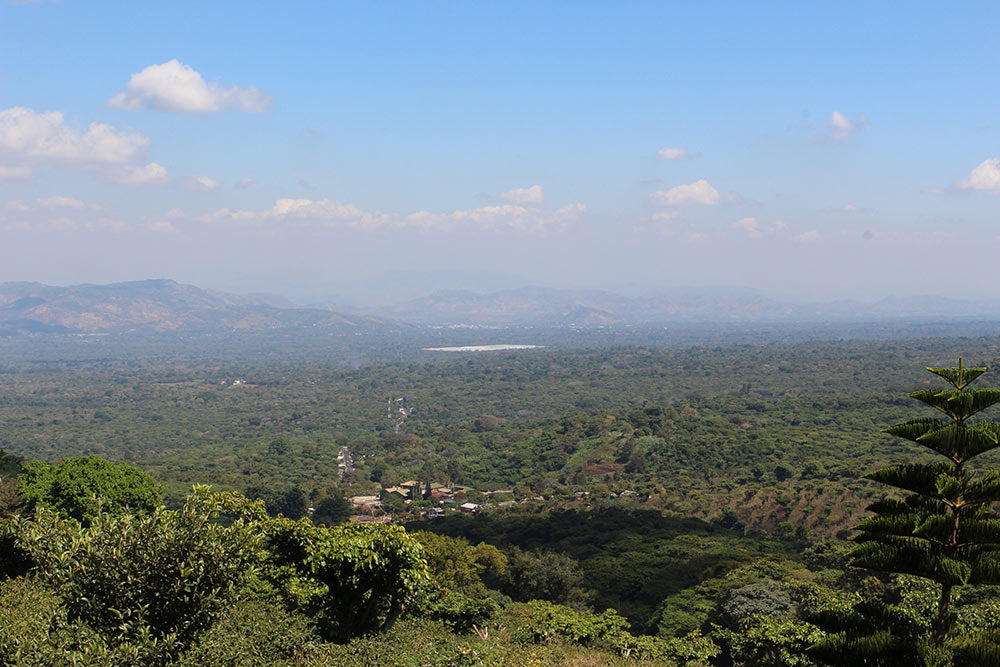
In addition to the coffee from their own farms, Beneficio El Manzano processes coffee from several other coffee growers in the region. Very few coffee farms in El Salvador have their own wet mill, meaning they must send their coffee to another facility to ready it for export. Most of these mills lack the ability to track an individual farm’s coffee through processing, meaning that coffees from many producers are often combined into a single lot.
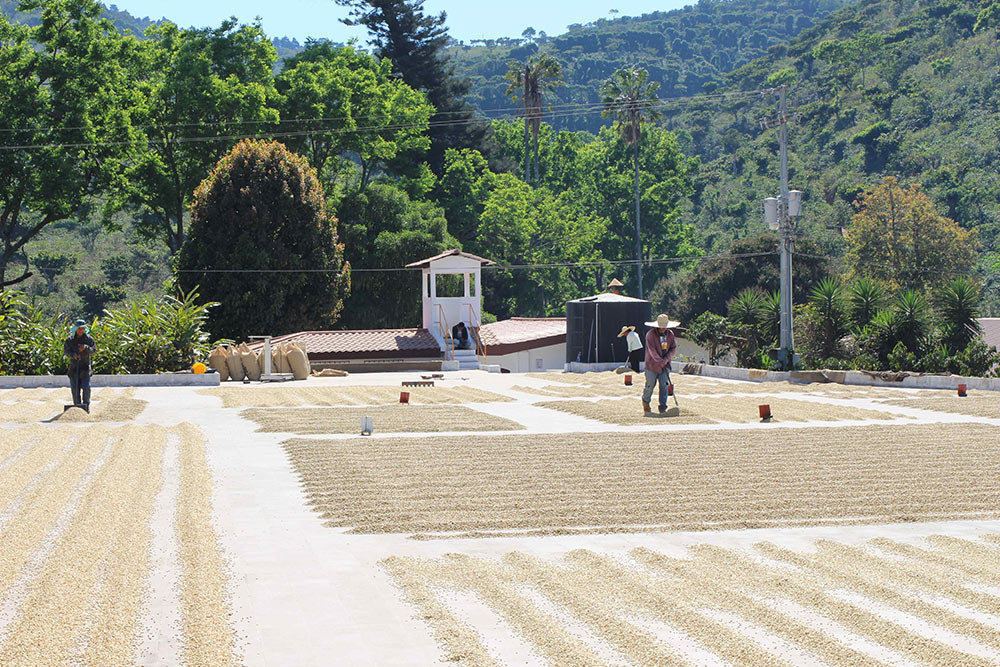
As roasters, being able to trace a coffee lot down to the farm level or even further to the specific section of a farm is immensely valuable. It allows us to select the very best coffees available, often specifying which varieties of coffee we desire from farms or regions growing several types. Small lot coffees also allow for better traceability through the supply chain, ensuring that the farmer’s hard work is adequately rewarded. Macro lot coffees that come from the large-scale mills are often blends of coffees of varying quality, meaning the best coffees are often lost in the mix.
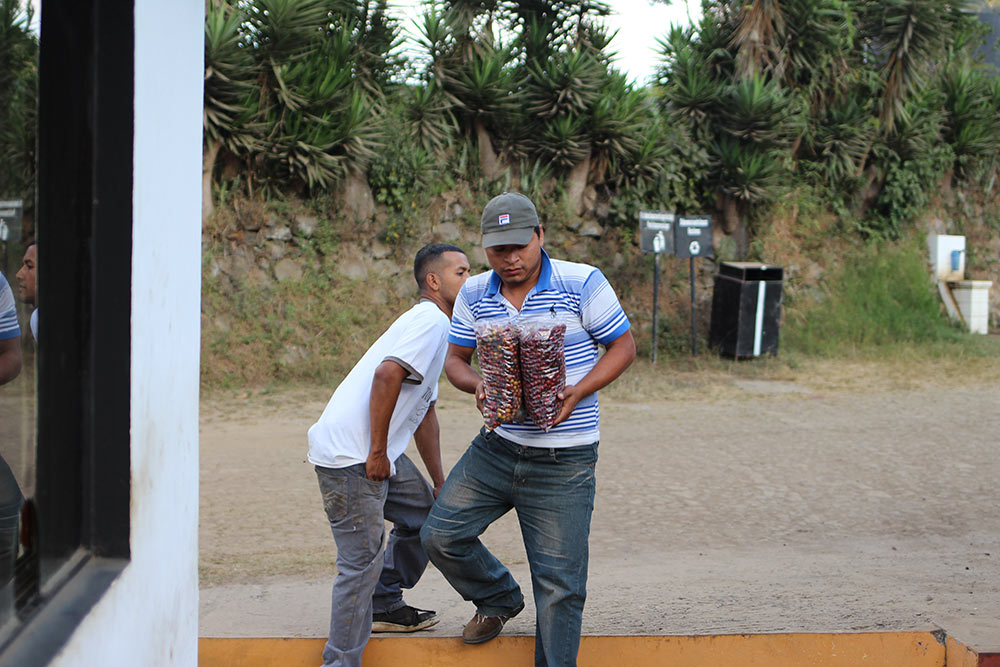
Beneficio El Manzano offers the farmers it works with complete traceability throughout the milling process. As ripe coffee fruit is brought into El Manzano Elmer, a member of the quality control team, takes a 2kg sample of the harvest to asses the quality of the fruit. Each truckload is given a grade based on what percentage is underripe, ripe, or overripe, as well as the sugar content of the fruit. At this stage each lot brought to the mill is given an identifying number and entered into a database.
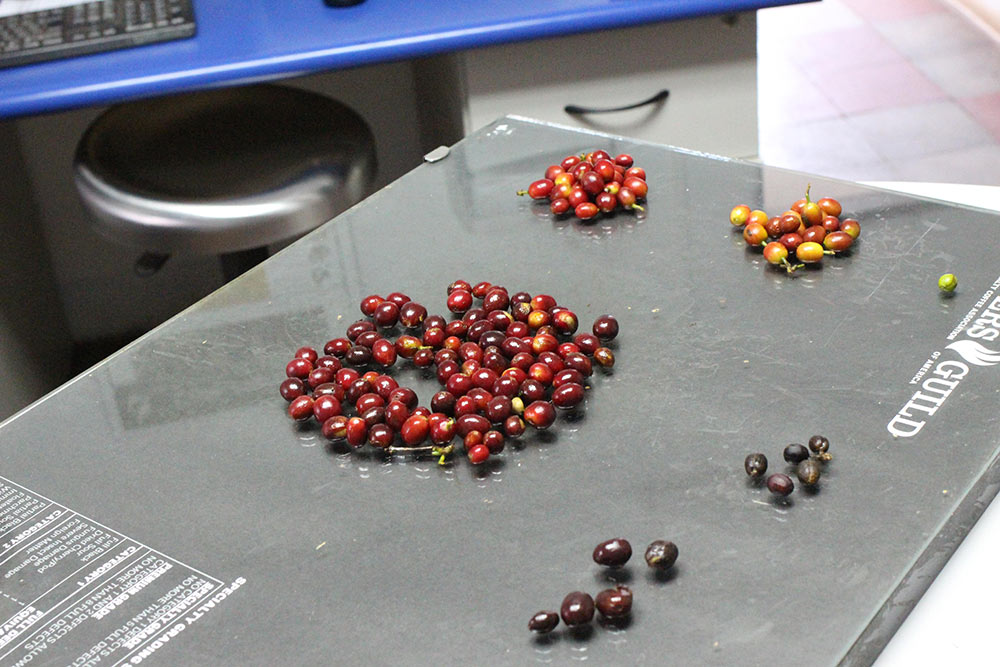
At the mill, the coffee can be processed using just about any common processing method. Many mills are only able to produce a single type of coffee, either washed, semi-washed, pulped natural, or natural. Over the last several years Emilio has outfitted Beneficio El Manzano with the latest technology in coffee processing, including several of his own innovations, giving unparalleled flexibility in milling styles. Coffees entering the mill at El Manzano can end up being processed in just about any manner that the end customer wants.
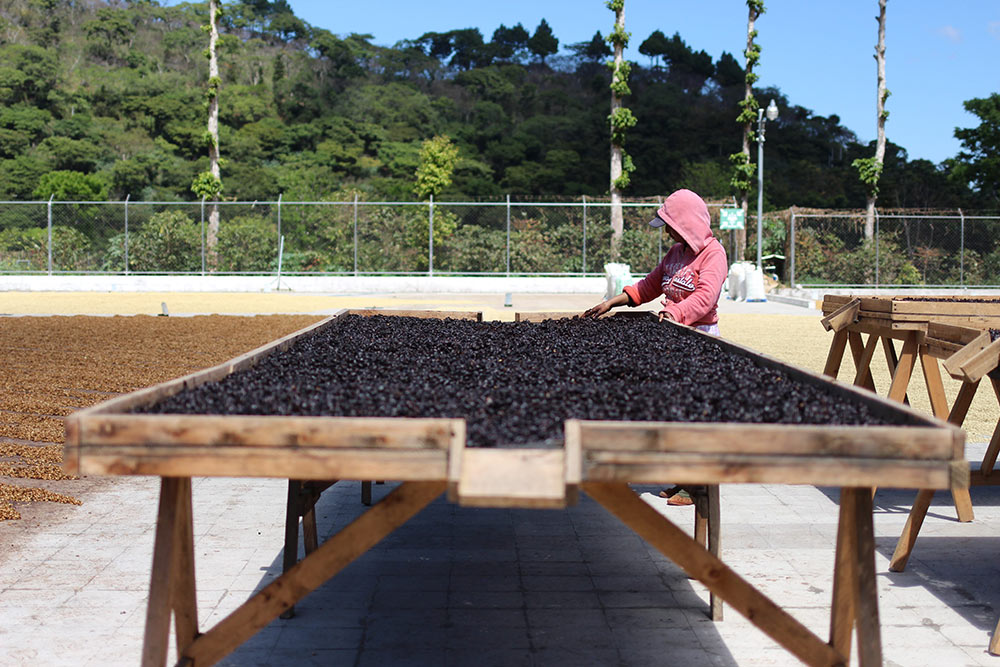
Our first day at El Manzano was spent in the cupping lab with the Quality Control Manager Dana. There we picked out which lots we wanted to bring in as single origin coffees as well as the lot we are planning on using as the base for this year’s El Toro Espresso Blend. This year we will be offering washed Bourbons from Fincas El Manzano, El Guaje, Talnamica, and Santa Julia. Look for more info on those coffees later this spring as they arrive in the United States.
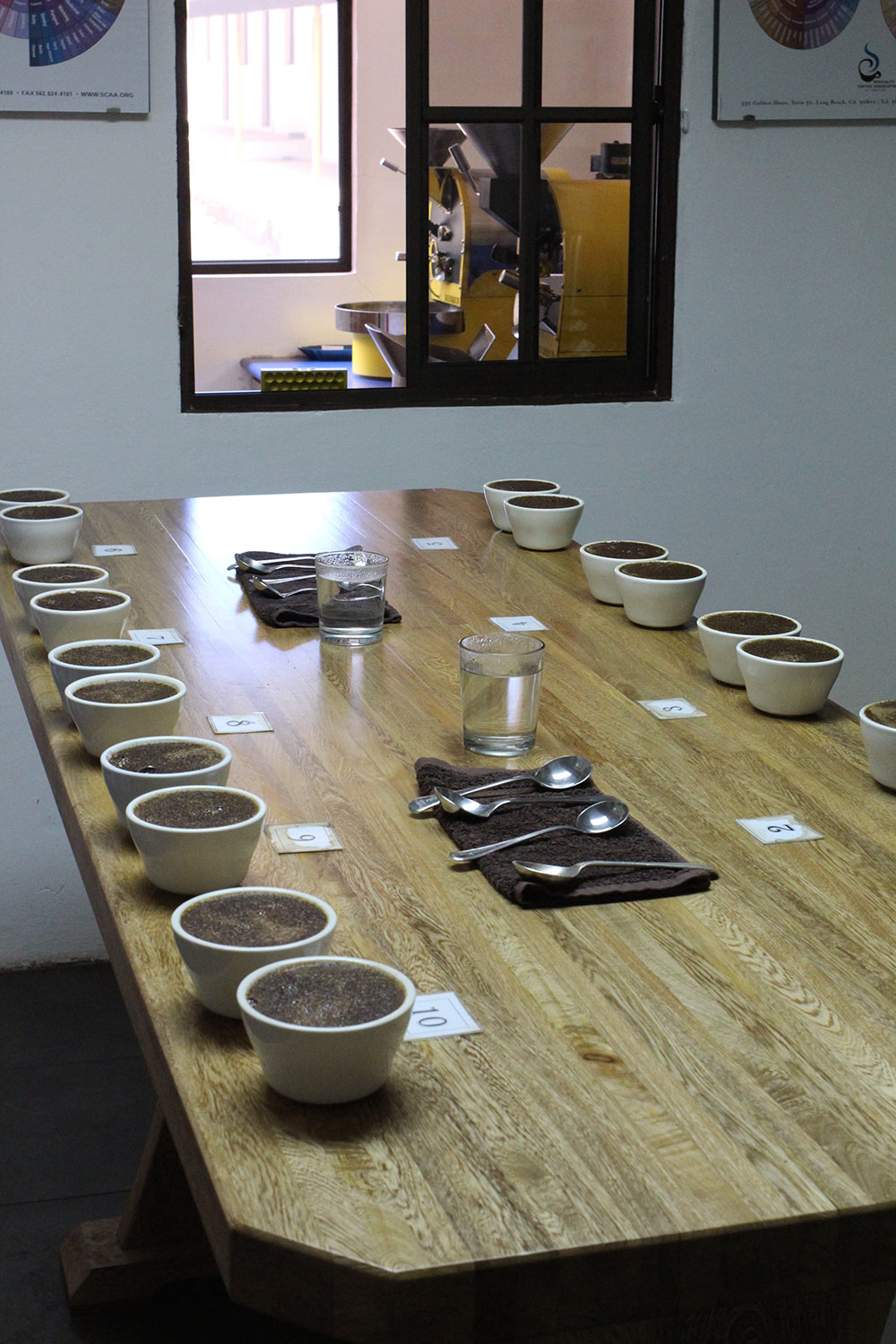
After tasting coffees in the lab we had the opportunity to watch lots from the Diaz family’s two farms getting processed at the mill. The first lot processed was a “generico” pick from Ayutepeque, the final pick of the season for that section. This type of pick strips all the fruit remaining on the coffee plant, resulting in a mix of fruit that ranges all the way from completely green and underripe to dried black fruit that is extremely overripe. Lots like this are sold as the lowest grade of coffee, making up the bulk of many inexpensive blends.
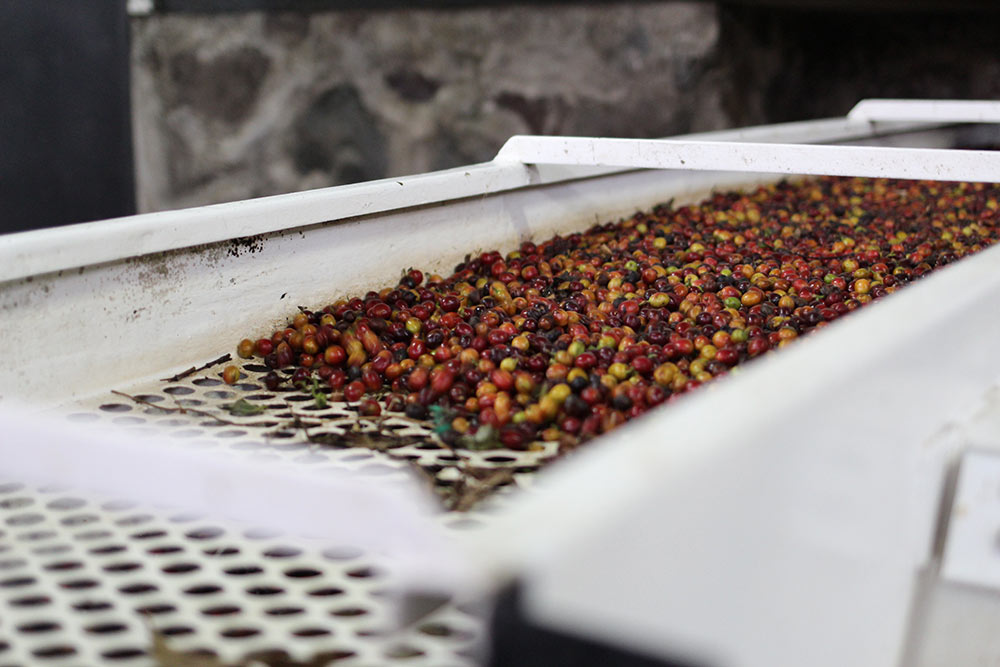
Later that evening we got to watch a high quality pick from Finca El Manzano getting processed at the mill. The difference between the selection on the two was striking. The more selective pick had virtually no under or over ripe fruit. Even with this meticulous selection it was still further sorted in the mill, with machinery separating out any fruit that appeared ripe but may not have been ideal. Steps like these are a huge part of why Cuatro M and El Manzano have the reputation for quality that they do, and why we choose to rely so much on these coffees.
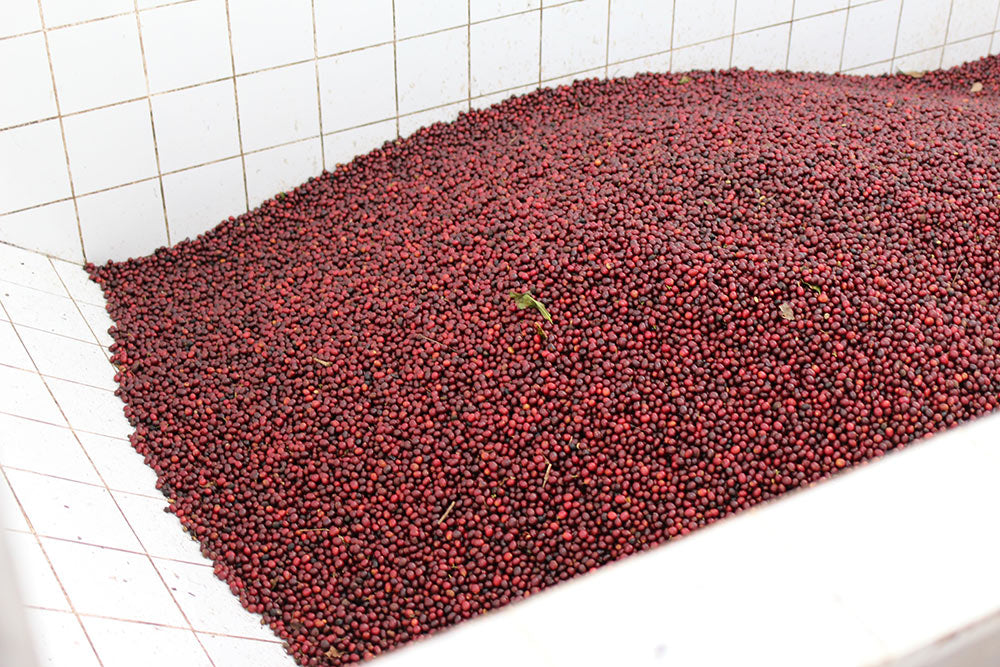
While at El Manzano, Dana also gave us a tour of the farm and showed us some of the innovations taking place before the coffee even arrives at the mill. Located just down the hill from the mill is a plot of land growing Pacamara type coffee plants without shade trees. Most coffee farmers plant shade trees like the Inga to protect the delicate coffee plants from the intense sun of the dry season, but Emilio has planted this lot as an experiment to compare how plants would fare without shade. Compared to other parts of the farm these plants are closer together with the intention that each plant could provide shade for the lower branches of its neighbor. Although the plants are only 18 months old and have yet to produce a full crop, the early results are promising.
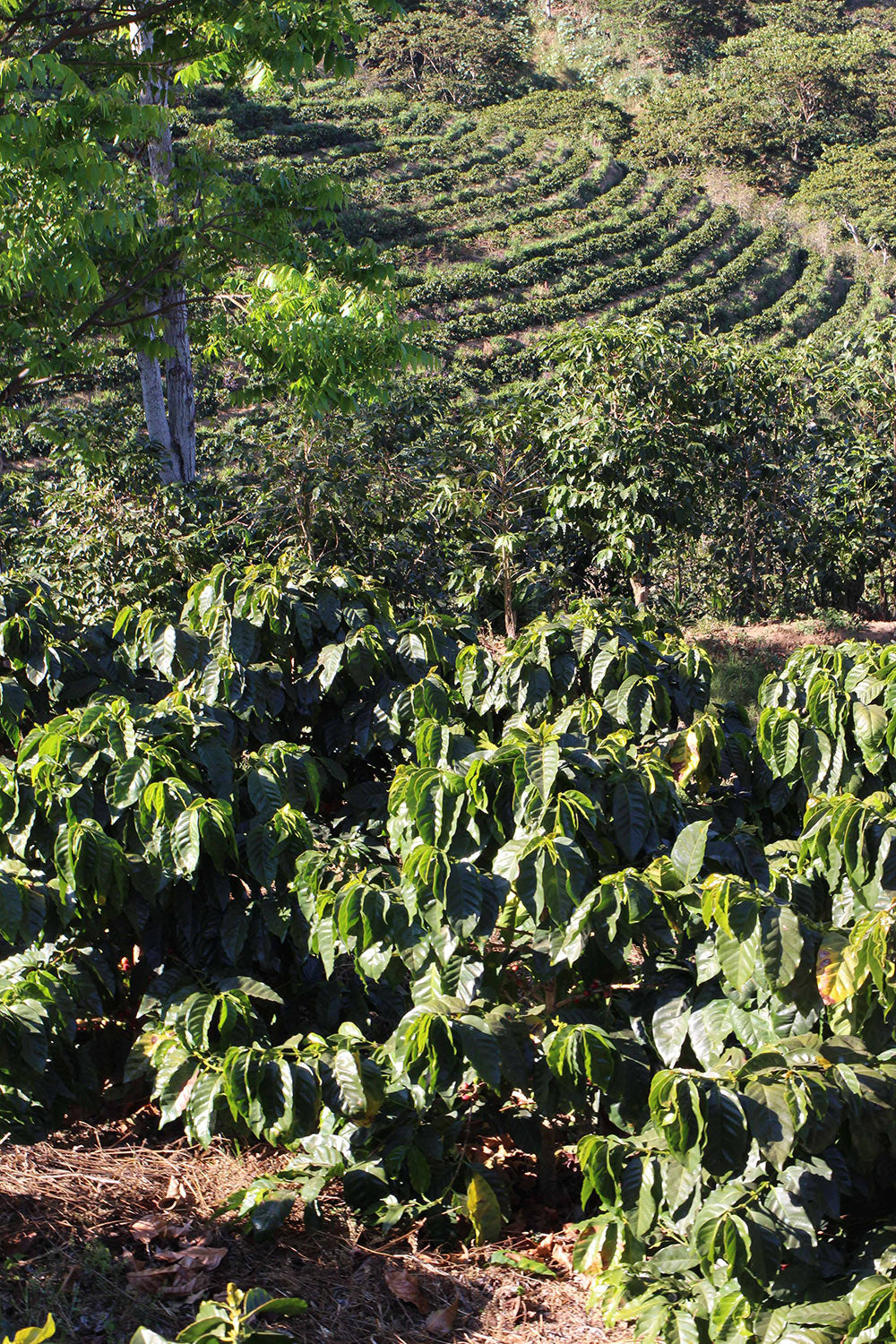
The coffees from El Manzano are an integral part of the menu here at Water Avenue Coffee, and visiting the farm and mill is essential to maintaining our relationships there. We use trips like this to promote transparency throughout the supply chain. By visiting with producers like Cuatro M not only do we gain the ability to pick out the specific lots we want to purchase, but we can ensure that the producers we choose to work with are responsible members of their communities. Look for the Farm Direct label on our menu and packaging to indicate coffees purchased directly from the producer.
